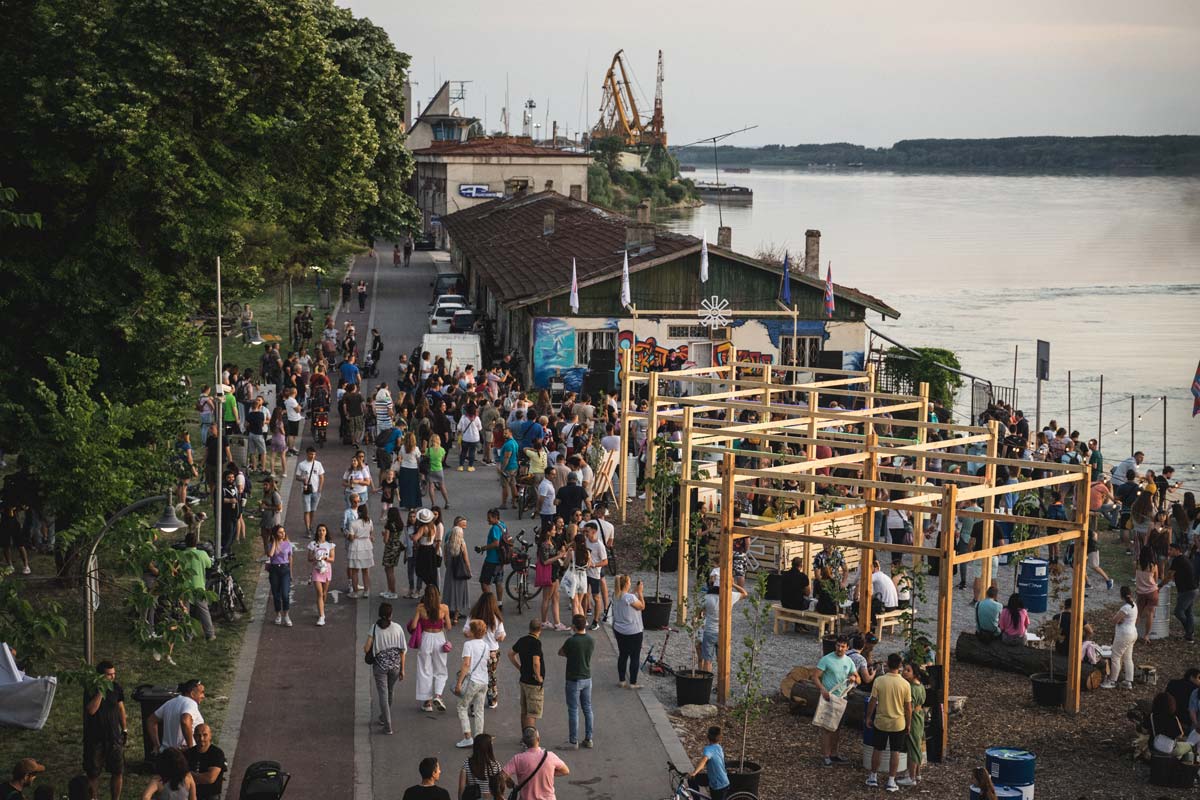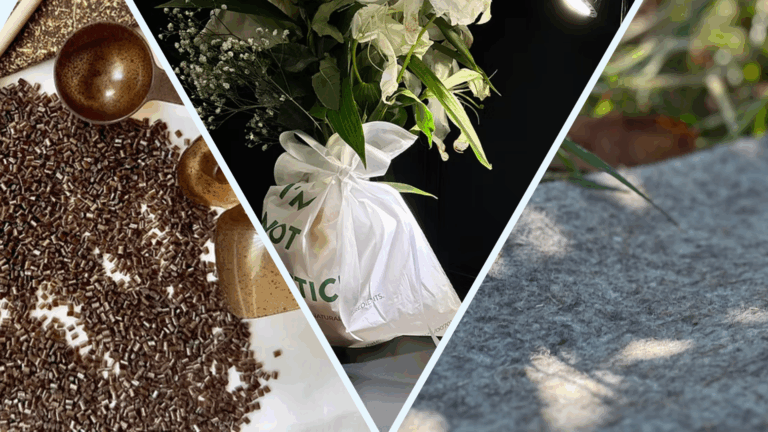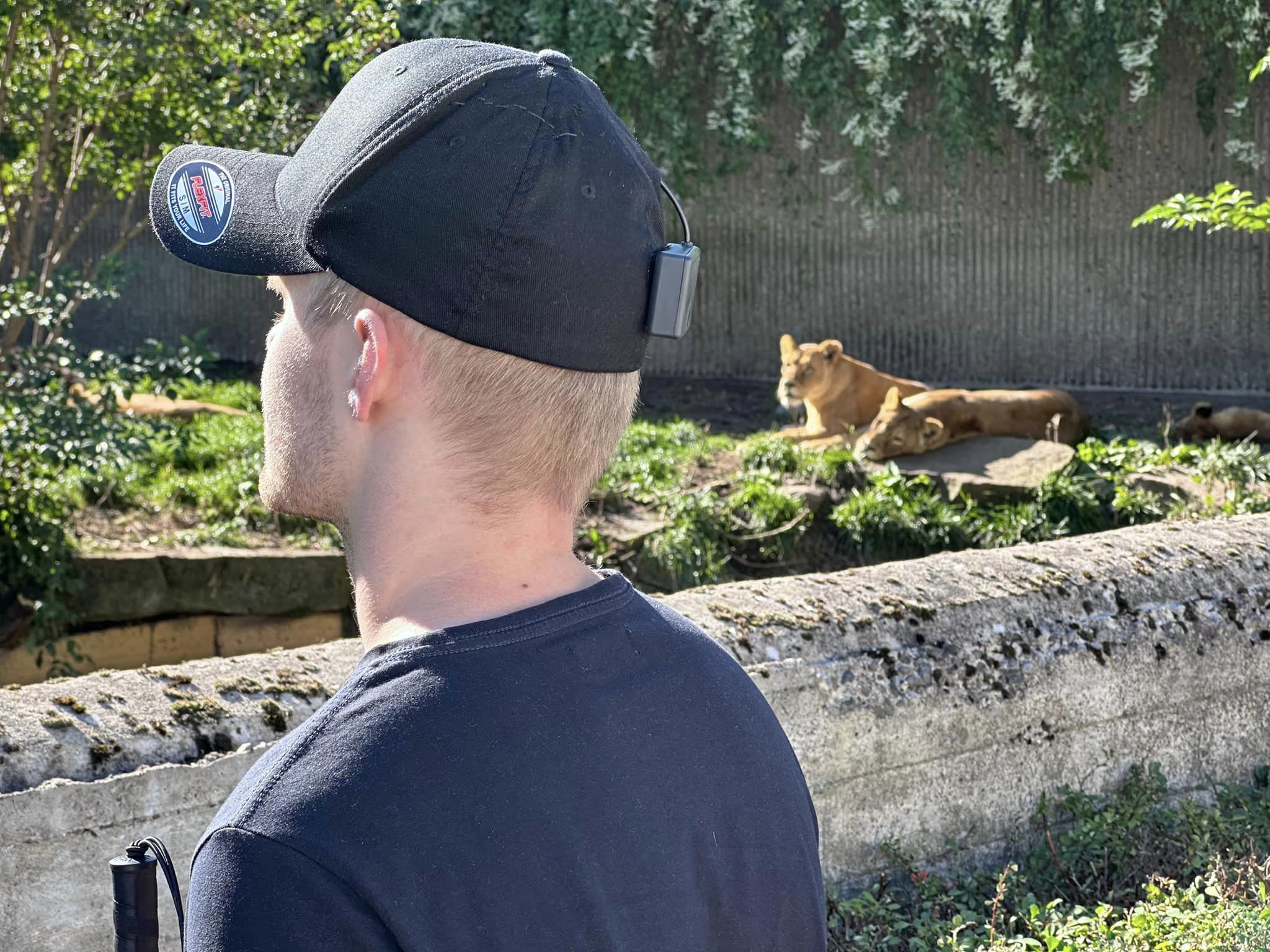
What Happens When Citizens Are Given the Tools to Transform Their Neighbourhoods?
Connect NEB proofs that meaningful transformation does not require large-scale infrastructure.

Founder reflections from the Catalyse NEB 2025 cohort
The New European Bauhaus asks industries to grow in a way that is sustainable, inclusive and rooted in quality of life. For industies like manufacturing, packaging, recycling and material innovation, this means more than reducing emissions. It means building systems that respect natural resources, involve communities, and create products that people feel good about using.
To understand how this shift looks from the inside, we asked three startups from the Catalyse NEB 2025 cohort to share their lived experience. Their answers show the pragmatism, doubt, experimentation and collaboration that sit behind every technical breakthrough.
Below, we explore four themes: the moment their work began, how they balance cost and scale with environmental goals, the partnerships and policies that matter most, and where they hope the industry will be in five years.
Founders rarely begin with a business plan. They begin with something they cannot ignore.
Packoroma grew out of a simple observation: packaging had drifted far away from the natural systems it depends on. Founder Zeynep Ilgaz Çiftçi tells us: “When I saw how disconnected the packaging world had become from the natural systems it depends on, I realized the real problem wasn’t just plastic: it was mindset. That realization came years ago while I was living in South America, surrounded by people who produced with harmony, not excess. When I returned to Europe, I knew the solution had to begin inside the industry itself, by redesigning materials that give back to nature instead of taking from it. That’s how Packoroma was born.”
For CLIC RECYCLE, the starting point came from a mix of professional experience in technology and personal memories from founder & CEO Valerie Itey: “Throughout my career in technology, I’ve been guided by a simple question: how can innovation truly make the world better? Seeing the growing mountains of plastic and waste polluting our land and oceans made me realize that real progress must restore nature. Inspired by practices from my grandparents’ vineyard, where traditional, natural methods protected the soil and conserved water. I realised that by bringing together that mindset, new materials and modern technology you can build systems that support the land instead of exhausting it.”
For Wastespresso, the origin lay in a daily practice for many people. Co-founder Ulaş Kayır illustrates: “Coffee grounds are discarded every single day, something people consume daily but rarely think about once the cup is empty. That moment of realization became our turning point. We noticed that many ‘sustainable’ products still relied on heavy, resource-intensive systems, so we chose to start from the waste itself and treat it as a usable raw material. What started as a crisis we faced behind the coffeeshop counter evolved into an opportunity to transform waste into value and to prove that even small, everyday habits can fuel big industrial change.”
Across all three founders, the starting point was not a grand vision, but rather paying attention to something familiar and real, and deciding to act on it.
None of the founders treat sustainability as something separate from the business model. They see it as part of how they reach scale and something that pushes them toward efficiency, instead of as a constraint imposed on it.
CLIC RECYCLE describes the balance as an ongoing. “It’s a constant exercise in collaboration. Working closely with farmers, research institutions, industry partners, and supportive regulators allows us to scale responsibly while keeping environmental impact at the core. It allows us to share costs, test materials faster and adjust production methods based on real environments instead of laboratory assumptions. By combining natural materials with technology, we can prove that regenerative, circular approaches work at scale, heal ecosystems, empower communities, and create measurable economic and social value.”
Packoroma focuses heavily on R&D so that bio-based packaging can compete on price over time. “Our reusable bio bags can be used up to eight times, which means each product replaces several single-use plastics. This not only reduces cost per use but also multiplies the sustainability impact across the entire supply chain. For us, innovation and accessibility go hand in hand: sustainability must be scalable to be real.“
Wastespresso acknowledges the elephant in the room: “Yes, conventional plastics are cheaper. Our bio-composite materials cost roughly twice as much as standard plastics, but far less than most bioplastics. We designed a model where every step adds value: waste collection, oil extraction, material production and their own consumer goods. This approach makes the higher material price manageable and gives partners clear environmental data through carbon reports. It also turns a cost item for companies into part of an impact story.“
The shared lesson across all three: sustainability does not scale through technology alone. It needs shared infrastructure, shared rules and partners who are willing to experiment.
Wastespresso depends on several types of partners at once. “As a startup, partnerships mean everything. We choose to work with people who share our vision and believe in what we’re building. From our logistics partners managing coffee waste collection across multiple cities, to sustainability experts preparing carbon reports, to industry leaders testing our materials and integrating them into their supply chains: each partnership strengthens our credibility and brings circularity one step closer to becoming the norm.
“Regarding policies, I find that regulations that limit single-use plastics help move our market toward alternatives. This combination builds trust and lowers the barrier for manufacturers to try something new.”
CLIC RECYCLE emphasises the importance of working with farmers, research labs and industry partners from the beginning. “These relationships help validate materials, test impact on real soil and reduce the risk of scaling too quickly or in the wrong direction.”
For Packoroma, the most decisive support comes from public bodies. “EU programs have been incredibly supportive in connecting us with innovation networks and research partners, but for compostable packaging, working closely with governmental bodies is where real systemic change happens. Policies around waste management, compost infrastructure, and incentives for bio-based materials can accelerate impact faster than any single partnership.”
“That’s why we aim to collaborate directly with state institutions and public programs, aligning industrial innovation with environmental policy. To scale sustainably, private innovation and public regulation must move together, not in parallel.”
All three founders see the next five years as a chance to shift daily industrial habits rather than chase symbolic breakthroughs. Their outlooks are concrete, not abstract.
Packoroma hopes that compostable and regenerative packaging will no longer be a niche. “The ambition is straightforward: make bio-based materials a standard, not an exception, and show that packaging can give back to natural systems instead of accumulating in them.”
CLIC RECYCLE wants the idea of “sustainable industry” to become normal practice. “Not a badge, not a separate category of companies, but something expected in how materials are made and handled. We want to show that caring for ecosystems can fit naturally into industrial logic.”
Wastespresso has a very specific milestone: “We aim to become the world’s largest processor of spent coffee grounds, with expanded operations in the EU and a broad export market. Our broader hope is that using waste-derived materials becomes routine for manufacturers, not a special project.”
The NEB values of sustainability, inclusion and quality do not enter industry through slogans. They enter through people who notice something small, test an idea, work with others and deal with the practical limits of cost, policy and manufacturing. The founders of Packoroma, CLIC RECYCLE and Wastespresso show that meaningful change often begins in places that seem ordinary: a bag, a vineyard, a pile of coffee grounds.
Their reflections remind us that the future of green industry is not built on radical reinvention but on steady, collaborative work grounded in real materials, real waste streams and real economic choices.

Connect NEB proofs that meaningful transformation does not require large-scale infrastructure.

When Emil, blind and newly relocated to Copenhagen, struggled to navigate an unfamiliar city, the experience sparked NaviBlind.
